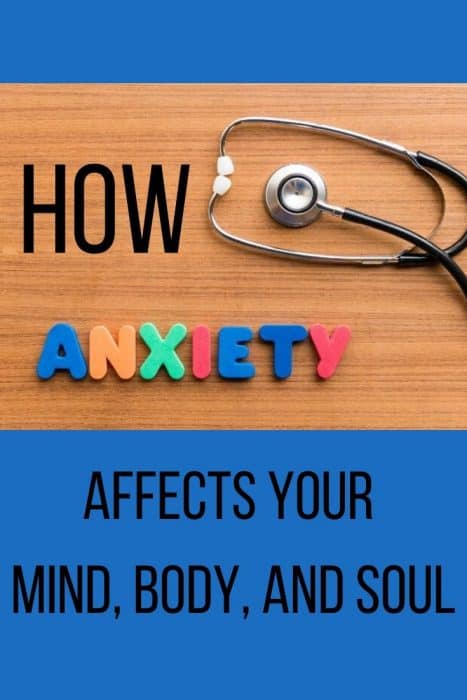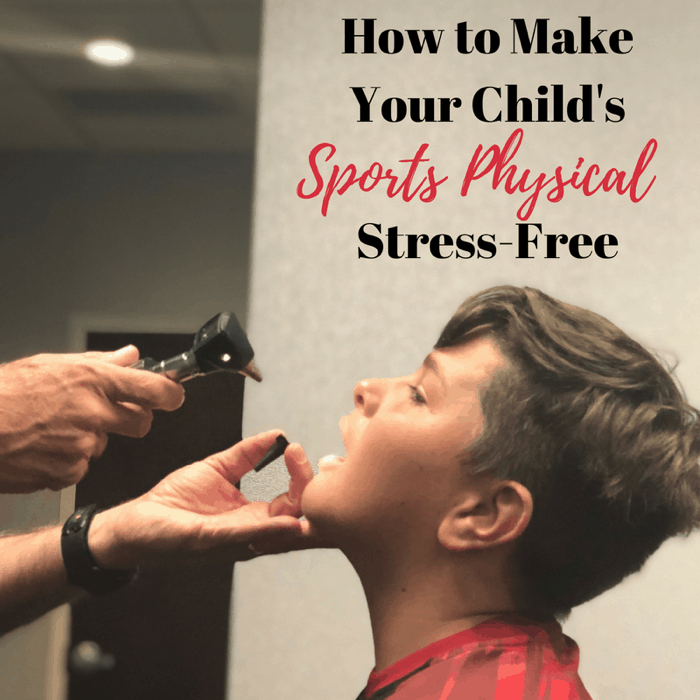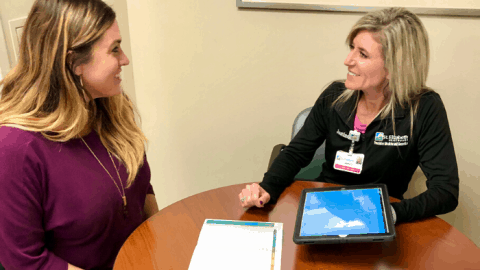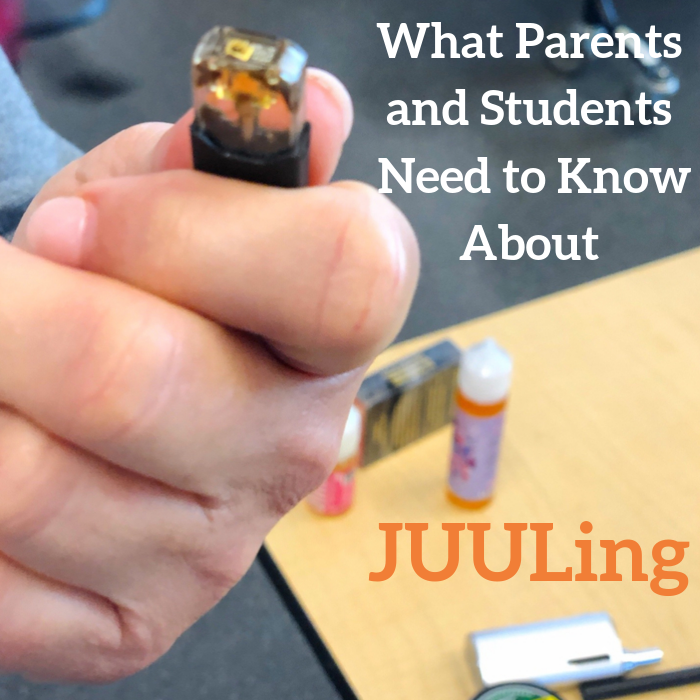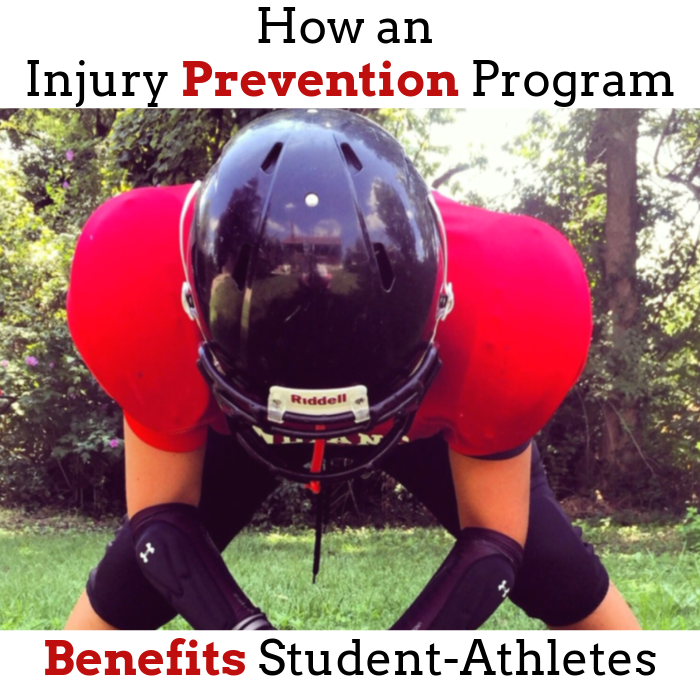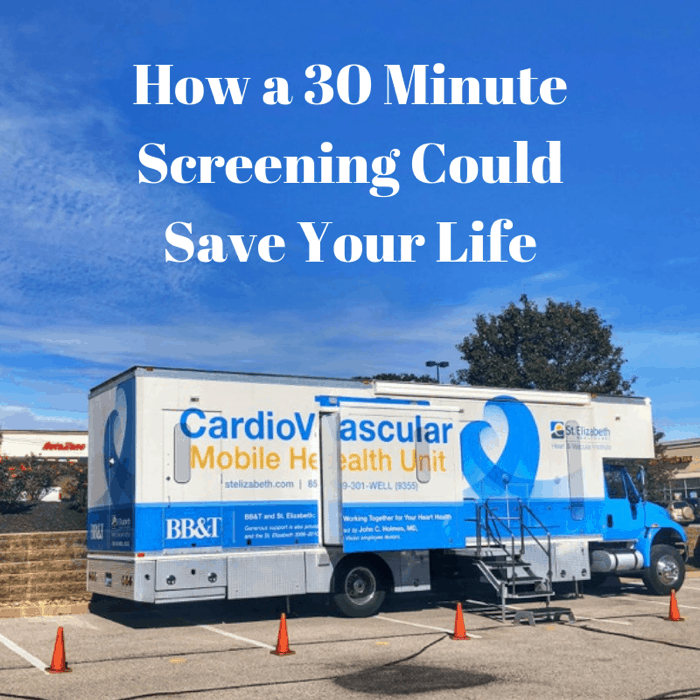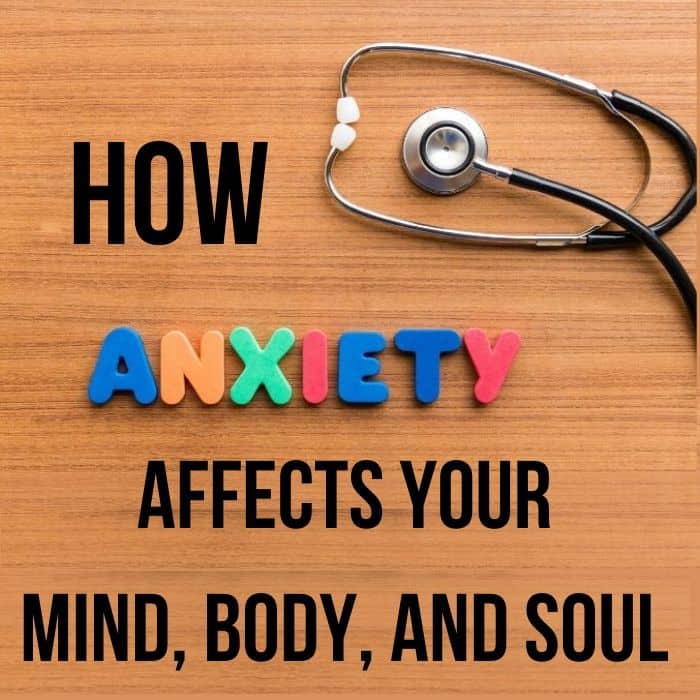
Many of us deal with anxiety at some level. It can affect us at different times in different ways, regardless of our age, race, or income.
I reached out to three professionals to learn more about how anxiety affects our mind, body, and soul. The information that they shared is really helpful for both adults and kids.
This article is brought to you in partnership with St. Elizabeth Healthcare.
Anxiety is always a relevant topic that is front of mind which is why I interviewed three staff members from St. Elizabeth Healthcare to help provide more insight.
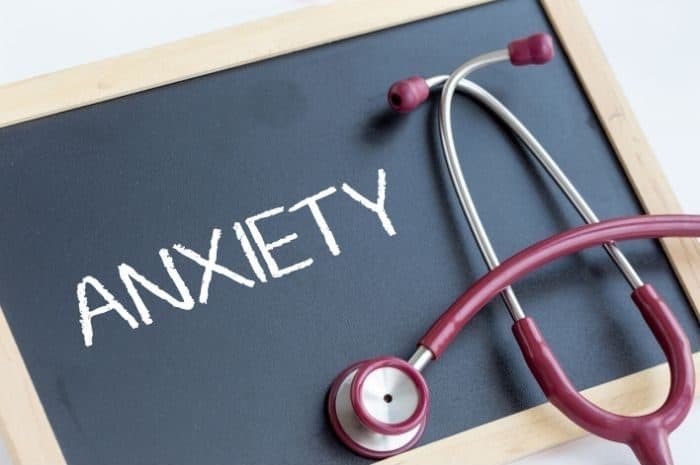
Experts from St. Elizabeth Share Tips for Dealing With Anxiety

Kelly Clasgens is a licensed clinical counselor with the St. Elizabeth Employee Assistance Program. Their client base includes employees and their immediate family members from approximately 80 companies in the tri-state area.
Dr. Randi Callahan Tracy, MD is a family practitioner who recently left private practice to work in Physician Wellness and Engagement for St. Elizabeth.
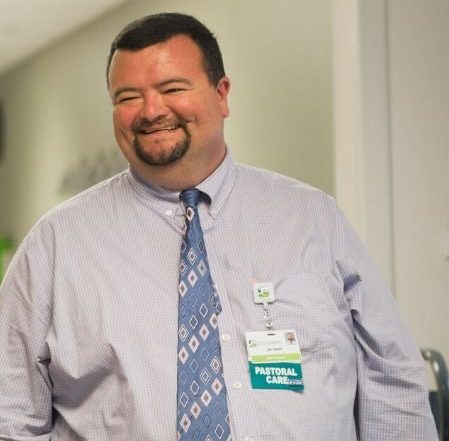
Jim Vaden is a full-time Chaplain in the Pastoral Care Department. He covers two intensive care units (Medical & Surgical).
Each staff member shared answers to my interview questions that applied to their professional area of expertise.
I’ve color-coded each staff member’s answers to make it easier for you to read and distinguish their responses.
- Kelly Clasgens – Mind (Therapist)
- Dr. Randi Callahan Tracy – Body (Physician)
- Jim Vaden- Soul (Pastoral care)
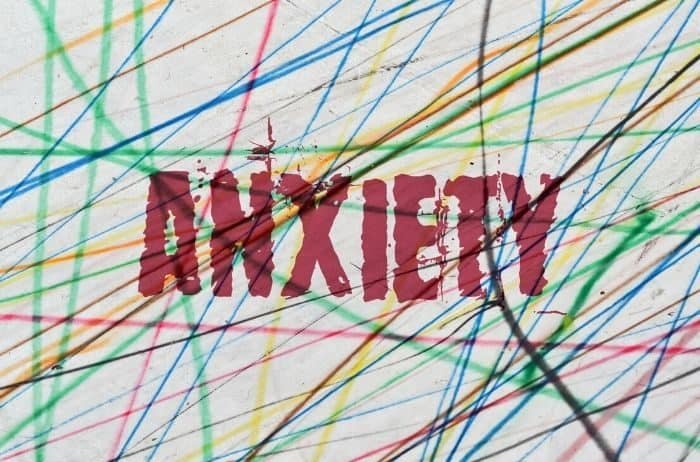
How would you define anxiety in layperson terms?
Kelly Clasgens
I like to say anxiety is often rooted in a person’s thoughts and felt in their bodies.
How a person views their world is a major contributor to their experience of anxiety.
It is our fight or flight response to a perceived threat.
How significant the perceived threat is determined by each person’s experience of it.
What is exciting and a welcomed challenge to some is terrifying for others. Public speaking is an example that is top of mind.
Dr. Randi Callahan Tracy
Anxiety can take many forms for different people, from general uneasiness or worry to physical symptoms like trembling, shortness of breath, or a pounding heart rate.
These symptoms are a normal response to something we view as a threat but can become a problem for us when we experience them frequently or without an obvious trigger.
Jim Vaden
Anxiety is a natural emotion and there’s nothing “wrong” about it.
Anxiety can be as mild as a general sense of unease and discomfort or it can be as intense as a paralyzing fear.
The severity of it, of course, depends on the situation and person.
It is almost certainly not a welcome emotion as it can make a person feel out of sorts, and even increase our heart rates, disrupt breathing patterns, and may cause sweating or nausea in extreme cases.
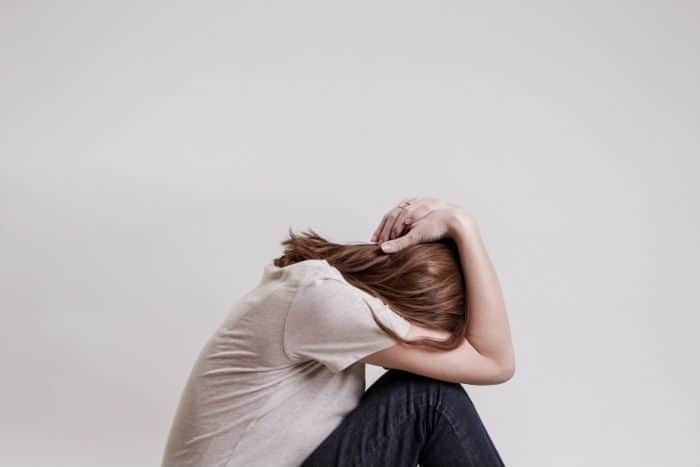
What are some things that we can do to help reduce anxiety in our physical bodies?
Kelly Clasgens
Any kind of movement helps regulate anxiety.
I am careful about using the word exercise because most people have an automatic reaction to it.
The more routine a person can develop with movement the less energy it will require to make it a habit.
Avoid all or nothing thinking related to movement.
If 10 minutes is what is available then 10 minutes is enough in that moment to make a difference.
Dr. Randi Callahan Tracy
These sensations of anxiety can respond to physical activity, such as a walk or bike ride. Trying to get outdoors for your exercise is particularly helpful.
Meditation and deep breathing techniques are great strategies, as well as avoiding caffeine and alcohol, which can cause anxiety to flare for some.
Jim Vaden
A good combination of a healthy diet, regular activity, and consisten sleep patterns can be effective in keeping anxiety in its proper place.
The ancient practice of meditation can also be helpful as it helps focus our minds in the “here and now” so we’re not continually lost in the seemingly endless stream of random and unpredictable thoughts with which our minds often bombard us.
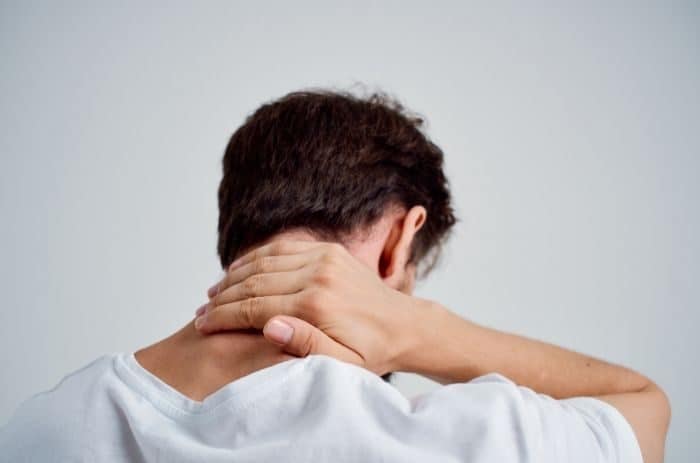
How does anxiety/stress negatively affect our physical body?
Kelly Clasgens
Chronic stress/anxiety impacts almost every bodily function.
For example, when children feel anxious, because they often do not have the vocabulary to describe their internal states, they will complain about their stomach hurting.
In adults, anxiety has a high rate of comorbidity for such diagnosis as gastrointestinal disorders and cardiovascular disease.
Anxiety elevates our internal states and often leads people to seek emergency medical care.
I get lots of initial appointments in which the presenting problem is that the person went to the emergency room worried that they were having a heart attack and are now seeking treatment for anxiety.
Dr. Randi Callahan Tracy
The hormones released when we are stressed or anxious can affect blood pressure, sleep patterns, body weight, and risk of heart disease.
We may experience tiredness, irritability, muscle tension and upset stomach symptoms as well.
Jim Vaden
It can have profound negative effects on the body. Some people will develop less than healthy habits to deal with anxiety, such as over-consuming food, tobacco, and alcohol use, among other unhealthy habits.
If the anxiety is allowed to progress untreated or uncontested, these habits can develop into full-blown addictions.
One symptom of anxiety is overthinking, spending far too much time thinking about something – an issue, a situation, a person, whatever.
Extreme overthinking leads to inaction, a kind of paralysis of the mind that can stop us from doing small, practical things to help ourselves and others.
Overthinking can cause physical tiredness and lethargy, headaches, backaches, and aches and pains in our necks, shoulders, and other muscles connected to our brains.
In extreme cases, it can even cause chest pains, shortness of breath, and other symptoms similar to heart attacks.
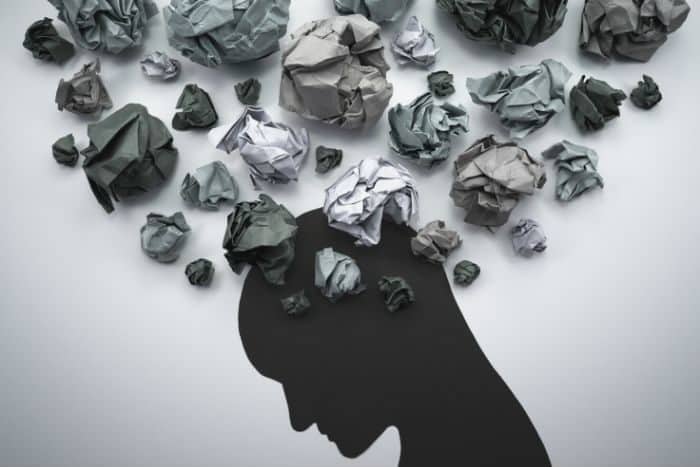
What are some things that we can do to help reduce anxiety in our thoughts?
Kelly Clasgens
Understanding cognitive distortions are key to reducing anxiety.
This is one of my favorite parts of the counseling process because it is a relatable phenomenon. Everyone has cognitive distortions.
There are times when they serve us well.
If I was getting up to bat, I would tell myself “You can do this just pretend like you are Joey Votto” or “Remember when you hit it out of the park last week.”
Many people’s cognitive distortions say something less positive such as “Everyone is going to look at me and know I don’t know what I am doing.”
People often focus on a single negative detail and allow it to cloud something in its entirety.
Working with people to identify their own cognitive distortions, challenge them in reasonable ways, and eventually come to “see” themselves in a different light reduces anxiety.
It is a skill that can be built and practiced in any situation or setting. I often tell clients it is important to practice this even when you are not feeling anxious so that it is a more accessible skill when you are anxious.
Practicing a reframe of a cognitive distortion a few minutes a day can reprogram unhelpful thoughts.
Dr. Randi Callahan Tracy
Some helpful practices include learning to visualize relaxing imagery, meditation, and deep breathing techniques.
Focusing on the positives in our lives, making sure we maintain connections with our support system and reaching out to help others are great ways to manage excess anxiety.
If watching the news or being on social media tends to cause undue stress, it is helpful to minimize the amount of time you spend on doing those things.
Jim Vaden
Mindfulness! Focus on the present moment, the “here and now.” Recognize that your mind is thinking.
The content of the thoughts is not important, so don’t ask WHY you’re thinking a certain thought, just focus on the fact that it’s there.
Now, be aware that you have the ability to recognize that you’re thinking that thought.
It’s like you’re standing off to the side, watching your mind race with thoughts and ideas – sometimes a cacophony of mental activity.
Focus on the place from which you’re viewing your mind racing.
This place is the “authentic you,” your real self, that is able to be in control of your mind if you allow it. Your mind is like a river; anxiety causes it to flow very quickly.
Being able to step out of the swift thought-current is akin to taking control of your mind.
Recognize that your real self is NOT the cacophony of chaotic thoughts and feelings, but is something separate from all that.
Viewed from this new internal perspective, you can see how anxiety fuels this stream of often random, disconnected thoughts.
Stepping out of that current of random, disconnected thoughts can bring a definite sense of peace and freedom.
The recognition that I don’t have to be carried away by every thought, or I don’t have to pursue every line of thinking to its conclusion, or I don’t have to consider every thought as being equally valid or relevant can be incredibly freeing.
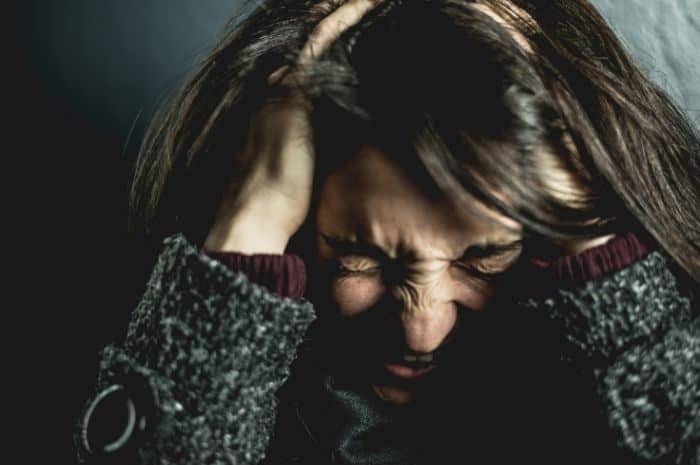
How does anxiety/stress negatively affect our mental health?
Kelly Clasgens
It is difficult to have clarity when we feel anxious/stressed.
It impacts productivity and general decision making. Having good mental health means regularly managing our stressors.
It is normal to have some ebb and flow to our mental health but accessing a skill set during the down times is important to building resiliency.
Most people know what to do to be healthy. Knowing is not necessarily doing.
Repetition creates discipline and discipline leads to more behavioral commitments that will sustain good mental health even during times in which a person does not feel like doing something.
Rarely is a good workout or a great conversation with a friend regretted after we have done it.
Dr. Randi Callahan Tracy
Anxiety is often associated with depression, feelings of isolation, anger, and irritability. When we are depressed, we are also at a much higher risk for abusing drugs or alcohol.
Jim Vaden
When anxiety is allowed to flourish it does exactly that: it grows and seeps into every corner of our thinking.
Some anxiety is natural and healthy – it comes with just being human!
Allowed to flourish, though, it can negatively affect our mind.
“Whataboutism” can lead to not taking action because we can become obsessed with every conceivable scenario – however unlikely MOST of them are.
This can lead to what some call “catastrophizing,” or the practice of imagining the worst-case scenario happening in every situation.
If acted upon, catastrophizing leads to erratic and incomprehensible behavior.
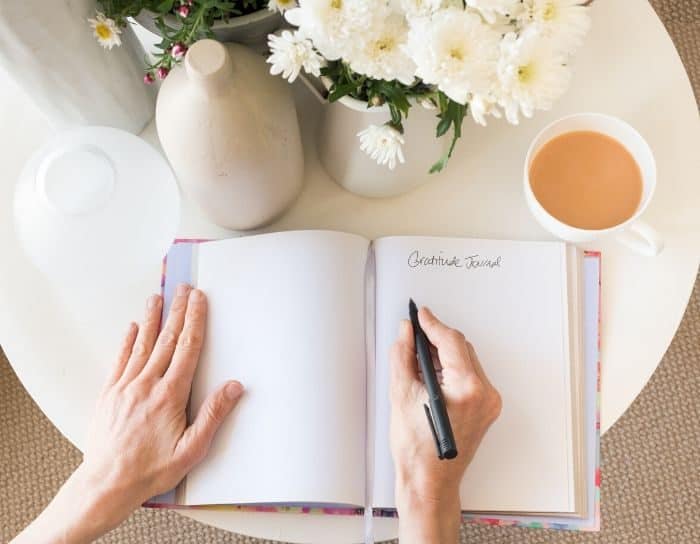
What are some things that we can do to help reduce anxiety when it comes to our soul?
Kelly Clasgens
This may take some self-exploration for many people. It is important to spend time engaging in activities or building relationships with what we find meaningful.
Allowing the space to nurture those things fills us up. When people feel connected or engaged, anxiety is lower.
I often ask people when is the last time you allowed yourself to have fun?
When they really have to think about it, the answer is in the silence.
Meaningful activities are not recreational; they are required to have a sense of fulfillment.
We often get busy completing tasks and say to ourselves there is not enough time.
Make the time because you are worth it. The bonus is that others benefit when your soul is filled.
Dr. Randi Callahan Tracy
I am a big believer in developing a “gratitude practice”.
Intentionally switching focus to helping others and acknowledging the positives in our lives automatically makes it harder for anxiety to coexist.
Jim Vaden
Spend time doing things that refresh you.
Personally, I enjoy reading good fiction that challenges my perception of reality. Getting lost in a dramatic or moving story is a way to let go of my own anxiety about my own life and my loved ones for a bit by focusing on the lives of others, albeit fictional people.
This creates some space where my mind is occupied by something other than anxiety and its endless stream of thoughts, a place where I can rest and be refreshed, and possibly re-engage in stressful, anxiety-provoking situations with some insight or wisdom that had always been there but had not been allowed to speak.
Anxiety is work! So any healthy practice that allows our mind to rest is helpful and good.
A healthy practice in western spirituality is “practicing the presence of God” and anyone can do it.
It’s very similar to mindfulness. The idea is to focus on the specific actions and motions of whatever activity you’re doing – whether it be washing the dishes, mowing the yard, or taking a walk – so that your mind is engaged in the “here and now.”
The activity you’re doing thus becomes a form of prayer to God.
It helps focus the mind on what you’re doing and encourages a state of rest and contentment for your mind and soul.
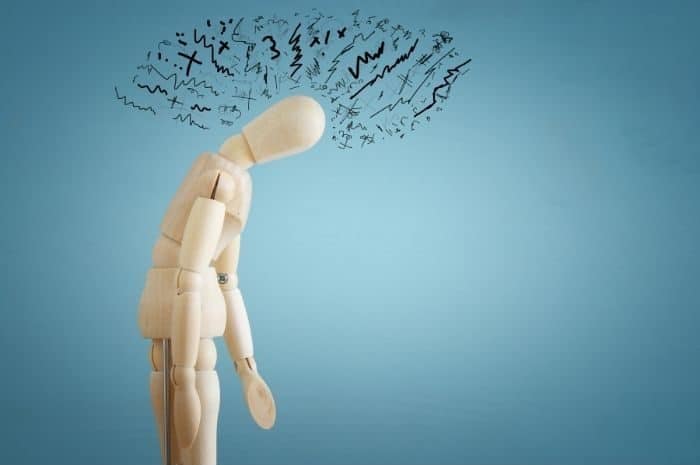
How does anxiety/stress negatively affect our soul?
Kelly Clasgens
People often feel elevated or fragmented when they are anxious and it can take over their whole being.
Anxious or stressed beings are often misinterpreted as shy or even rude in social situations and can have fewer opportunities to really share themselves with others and often leave circumstances feeling rejected or empty.
People often say they are so “in their head” that they can’t track a conversation and therefore become self- conscious about putting themselves out there for deeper friendships.
Anxious individuals have a desire for meaningful, soul-filled conversations but get so overridden with those feelings that they are reluctant to keep trying.
Dr. Randi Callahan Tracy
When we are depressed or anxious, we may tend to isolate ourselves from our friends and family and may even experience feelings of worthlessness or failure if we feel unable to “fix” the problem.
Some people function very well on the surface, but still struggle with those same emotions. It is important to remind ourselves that anxiety and depression can be a very chemical process, not unlike hypertension or diabetes, and may even be inherited.
In the same way, we would not expect a patient with high blood pressure to just “get better” without intervention, we need to consider that sometimes additional help like counseling and medication can be just as important in the treatment of depression and anxiety, which often occur together.
Jim Vaden
As I said above, anxiety/stress is hard work. It makes us tired – physically, emotionally, mentally.
Our souls become burdened, especially if we are the kind of person who takes the burden of others onto ourselves (as I so often do in my work as a chaplain).
These burdens weigh us down and we can become depressed, which makes us unwilling or unable to cope.
Recognizing that our souls are carrying too much emotional and spiritual weight is the first step to unburdening, which can often mean we simply need a break.
If my soul is overwhelmed, then I can not really help anyone else. This only adds to our collective angst and turmoil, which we call anxiety.
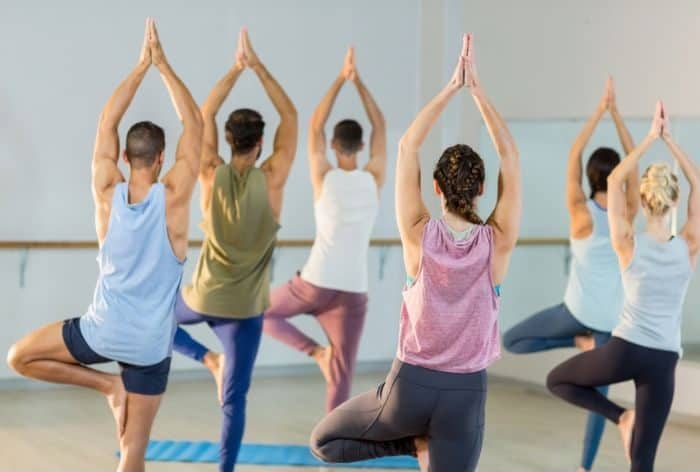
What are some techniques that can help someone suffering from anxiety?
Kelly Clasgens
Any kind of movement helps to regulate anxiety. Pick some form of movement and commit to doing it 3 times a week for 30 minutes.
Avoid trying to outrun anxiety. Recognize anxiety for what it is. It is a temporary state even if it seems like it has settled into your whole being.
Cultivate a few new cognitions that help reduce the cognitive distortions that amplify anxiety.
For example, if you are guilty of worst-case scenario thinking, a common cognitive distortion, try reflecting on a few times in which the worst-case did not happen and attend to what did happen instead.
Mindfulness is a strategy that helps to reduce anxiety as well. The idea is to focus on being present in the moment without being critical of oneself. It is a simple but not easy skill that requires practice.
Spend a few minutes each day focusing on being in the moment regardless of what that moment looks like. When a person is focused on the now they can not be simultaneously focused on the past or future and it helps stay grounded to the present.
Dr. Randi Callahan Tracy
We mentioned gratitude practices, meditation, breathing, and imagery.
Exercise and seeking the company of family and friends are also very helpful. If you have tried a variety of things and are still struggling, it is important to reach out for help, and your family doctor can be a great place to start.
Jim Vaden
A brave step in dealing with anxiety is to allow it to become a teacher of sorts.
During the practice of mindfulness ask it questions.
What does it want?
Why is it there?
What is it trying to say to you?
Consider the words of the ancient poet/mystic Rumi, who wrote
This being human is a guest house.
Every morning a new arrival.
A joy, a depression, a meanness,
some momentary awareness comes
as an unexpected visitor.
Welcome and entertain them all!
Even if they are a crowd of sorrows,
who violently sweep your house
empty of its furniture,
still, treat each guest honorably.
He may be clearing you out
for some new delight.
The dark thought, the shame, the malice,
meet them at the door laughing and invite them in.
Be grateful for whatever comes,
because each has been sent
as a guide from beyond.
It is probably challenging to view anxiety as a “guide from beyond.”
My experience of anxiety has mostly not been positive.
Rumi is challenging us to view even our “negative” experiences, such as anxiety, as opportunities to grow, to learn, to become more of our authentic selves we were created to be.
Who knows?
Perhaps there is some “new delight” waiting for us!
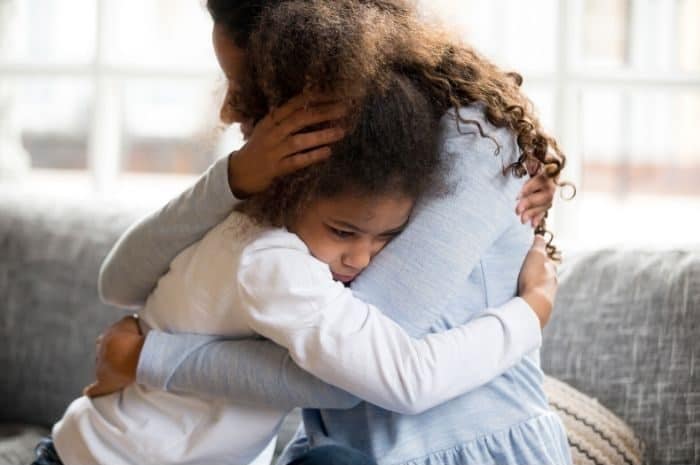
How can you define “anxiety” to a child?
Kelly Clasgens
Use words your child will likely understand for their developmental level. Worry, nervousness, and uneasiness are synonyms for anxiety.
It is common for children to describe their anxiety with physical complaints as well.
They may talk about not feeling good, their head or stomach hurts. They may withdraw or avoid anxiety-provoking situations or cry so much that it leads to a temper tantrum.
Dr. Randi Callahan Tracy
While it may depend on the age of a child, anxiety can be explained as anything from feeling worried or angry to the frightened feeling we might get in a fearful situation, such as a thunderstorm
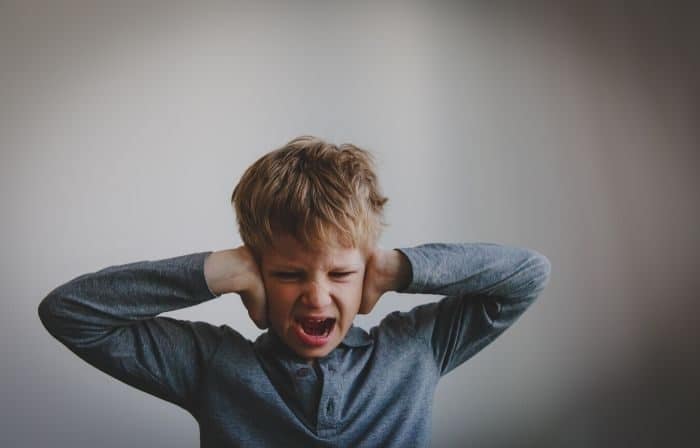
How can you help a child communicate when they are feeling anxious?
Kelly Clasgens
Teach them words to describe their internal states.
Taking the guesswork out of someone else’s feeling states will improve everyone’s understanding and increase the probability that they will share their feelings the next time they are feeling anxious.
Dr. Randi Callahan Tracy
It helps to let them know that while anxiety can be completely normal.
Younger children may communicate anxiety more in their behavior, and it is important to be in tune with changes in your child that could be an indicator of them feeling stressed or anxious.
It helps to talk about identifying and naming emotions when they are feeling them so that they are able to better share what they are experiencing and how to manage some of those feelings when they arise, as well as identifying triggers for them.
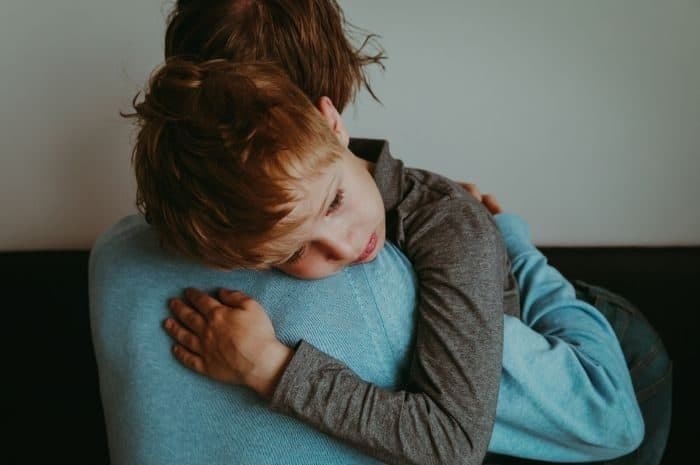
How can parents help reduce their child’s stress?
Kelly Clasgens
It is important for parents to be aware of how their words and non-verbal communication may be interpreted by their child(ren).
If a parent can remain relatively calm then the child can take their cues from them.
Children are very often in tune with a parent’s stress signals even when parents are not. If the parent’s stress level is unmanageable then it is okay for a parent to step away until they can re-engage in a calmer demeanor.
It is also a good idea to model ways to manage stress.
If a parent needs to take a deep breath or ask for time to calm down, then the child will learn that it is okay to do the same.
Dr. Randi Callahan Tracy
Modeling healthy behavior to our children is extremely important.
When they see us exercising, engaging in other forms of self-care, and staying with a routine, it gives them an important sense of normalcy.
Trying to engage kids in creative and physical outlets is also very helpful.
Jim Vaden
Normalize it for them. Tell them it’s ok to feel stressed or anxious or worried.
Help them articulate it, name it.
A great amount of fear and greater anxiety comes with not knowing what’s happening or why we feel the way we do!
Engaging in playful activities with your child can also help them – and you as well!!
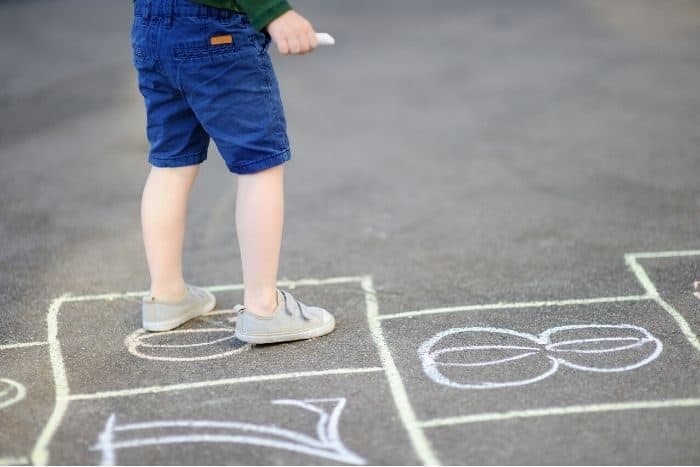
What activities can help kids reduce their stress levels?
Kelly Clasgens
Having a predictable routine helps children manage their stress levels. Routines equal safety/security in a child’s eyes.
When routines are changed without notice it often leads to predictably poor behavior. Routines give children a sense of control over their environments.
Reducing overstimulation is another way to help manage stressors. Self-directed play is a great way for children to express themselves.
Getting away from electronics is a great brain break. Getting outside is an even better way to move away and use up stored energy that may be otherwise negatively directed at those in the family.
Dr. Randi Callahan Tracy
Certainly, outdoor physical activity should be an important part of every day.
Balancing screen time and content with crafts, reading, and music/dance parties are great outlets as well.
Keeping a normal schedule including bedtime routines is also very important.
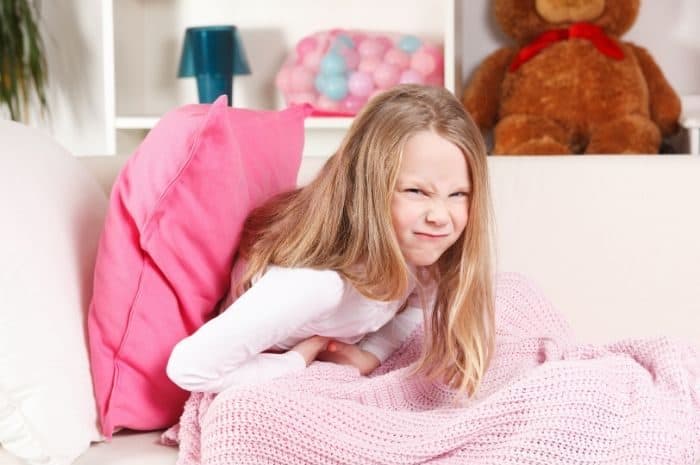
What are the physical signs of anxiety?
Kelly Clasgens
This includes physical complaints of body aches, headaches, stomach pains, and a general sense of being keyed up or restless.
Dr. Randi Callahan Tracy
These can be variable, but can often include headaches, upset stomach, insomnia, as well as irritability.
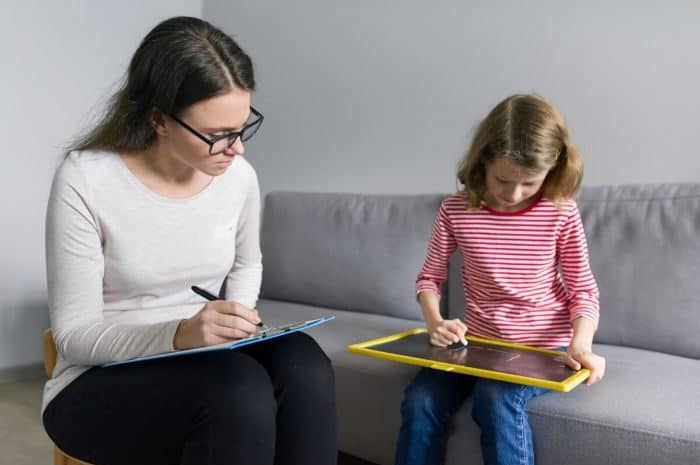
When should a parent seek professional help for their child?
Kelly Clasgens
If a parent themselves feels overwhelmed or at a loss to guide their child they should consider professional help.
If the anxiety is impacting social relationships and/or academic gains is also an important key in seeking professional help.
If the child asks for help it is important to take it seriously and reach out to a professional.
Dr. Randi Callahan Tracy
Parents are typically very in tune with their children and are familiar with some of the fleeting types of anxiety that their kids have been able to manage successfully.
If they notice increasingly severe symptoms that are not responding to the measures we discussed, and these seem to be getting in the way of their normal functioning, then it is time to seek advice.
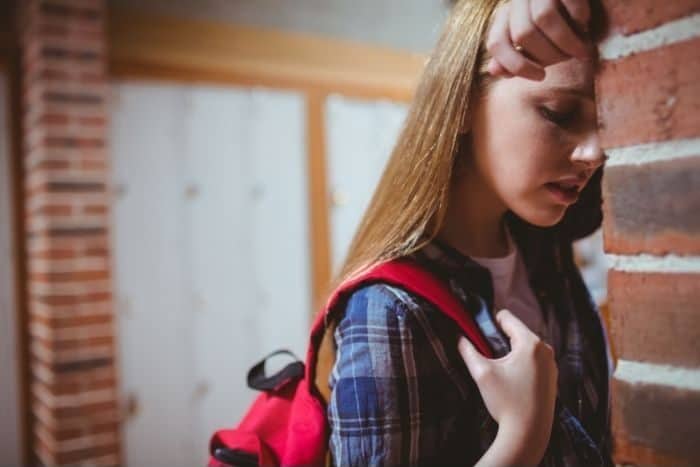
How can parents help reduce their teen’s stress?
Kelly Clasgens
Most teens want their parents to listen. Many feel misunderstood by adults or less important because they are not an adult yet.
Some level of privacy is important as well.
It is reasonable that parents monitor some of their teen’s behaviors but allowing some space for them to make decisions independently will help the teen and the parent grow.
All of us make mistakes and it is important for teens to learn from their mistakes.
It is understandable that parents want to protect them from making mistakes but navigating conflict is a life skill that everyone benefits from.
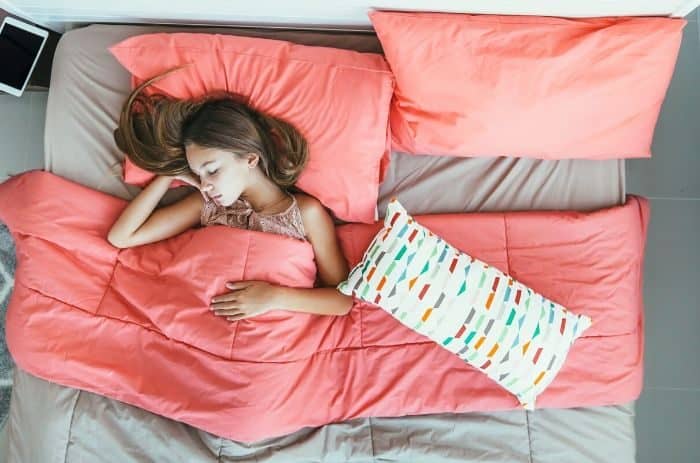
What activities can help students reduce their stress levels?
Kelly Clasgens
Taking time away from schoolwork is necessary. A rested, well-fed student is more likely to do well than a stressed out, overwhelmed one.
Most teenagers will say that spending time with their friends is the most important thing in their life.
It is important for them to have a peer group in which they feel like they are getting their needs met.
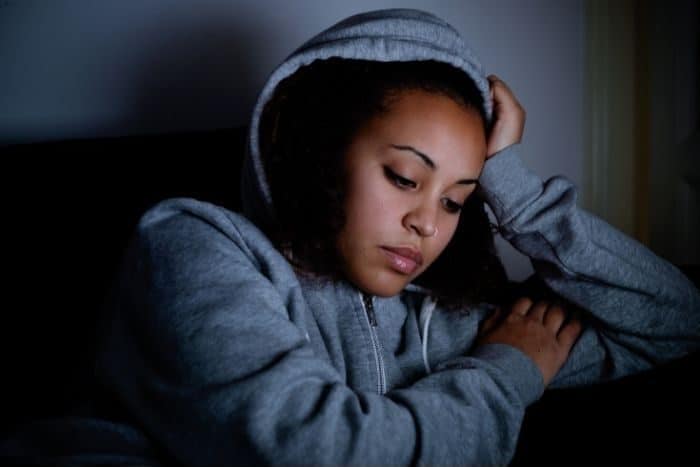
When should a parent seek professional help with their teen?
Kelly Clasgens
If a parent notices significant changes in friend groups, school performance, or a decline in interests/hobbies.
These changes may be normal but it is a good idea to be proactive and have a conversation with their teen about what they may need. Many teens will ask for help but if not offer it as an option.
Oftentimes the therapist’s role is very different than the parents’ role in working with a teenager and that is okay.
The therapist’s role is to understand from the teen’s perspective, build skills to help them make independent quality decisions and to feel better about themselves.
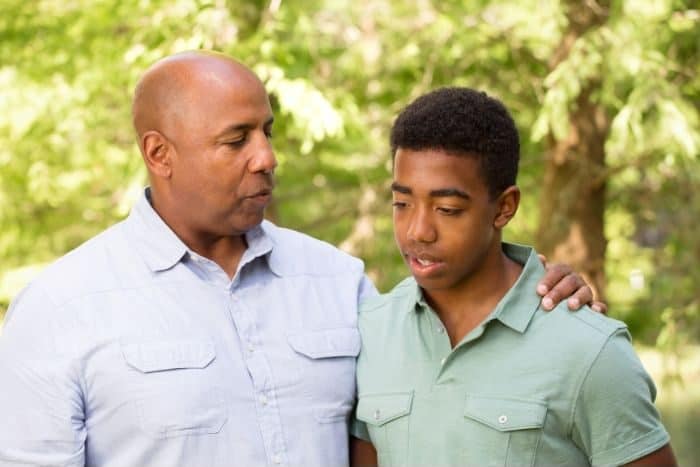
Is there specific language or techniques that can be helpful for a teen to communicate their anxiety?
Kelly Clasgens
Ask open-ended questions and avoid making assumptions.
Very few people find it beneficial to hear about back in my day stories.
When teenagers feel minimized or judged, they often shut down.
It is common for teens and parents to have different points of view and this is the time to honor differences and avoid trying to get one side to come over to the other side.
Use reflection as a way to get a teenager to open up. Reflect their emotion or their words in conversation. Asking too many questions sometimes leads them to shut down as well.
Be careful that the questions are not implied commands. When in doubt ask the teen what method of communication they would prefer.
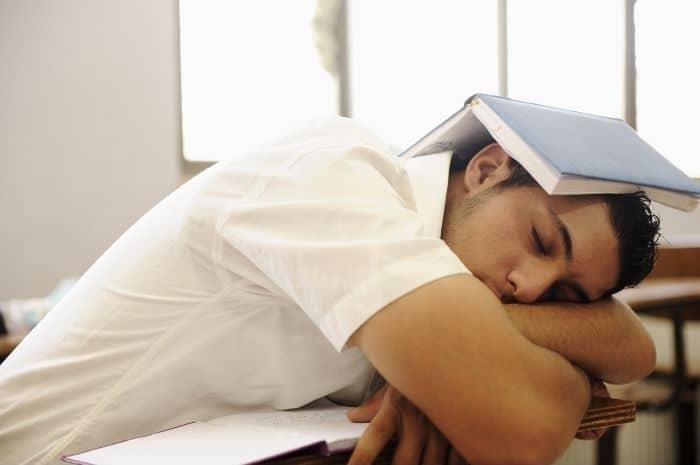
Are there specific signs to look for?
Kelly Clasgens
Unexplained avoidance is a sign to look for.
Changes in sleep habits are also a big sign.
Teenagers are known for sleeping but there is a difference in sleeping to avoid situations or emotional pain and sleeping due to being tired.
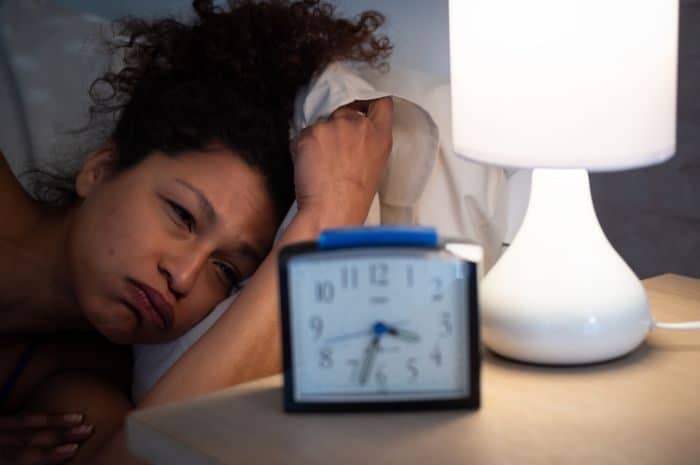
What are some tips/techniques for someone having trouble sleeping at night because of worry/anxiety?
Kelly Clasgens
Set aside time each day, before nightfall, to focus in on thoughts/worry/anxiety and set a limit.
For example, after dinner, spend 20 minutes intentionally focused on the anxieties and at the end of that time get up and engage in another activity.
Even if thoughts drift back to the anxiety they will be less likely to creep in right before bed and keep a person awake.
Good sleep hygiene is also helpful. This includes keeping similar bedtimes and awake times and being careful to not overuse electronics especially if the content of the electronics lend themselves to anxiety.
Dr. Randi Callahan Tracy
There are many techniques that may help someone get back into a regular sleeping cycle when they are having insomnia for any reason.
Regular exercise is very important but is best done earlier in the day to avoid being stimulated to close to bedtime.
Avoiding caffeine, as well as alcohol and nicotine is important, all can affect the sleep cycle.
In addition, turning off the television and electronics about an hour before you go to bed, helps our brains to enter a restful time in preparation for sleep. Reading a book or listening to music can be helpful prior to going to bed.

What are your tips for dealing with panic attacks?
Kelly Clasgens
Keep in mind, panic attacks eventually subside. Tune in to precursors of the panic attack if possible so that way a person can learn from them.
Reach out to a trusted person to walk through the panic attack and/or distract from it. It is difficult to remember what to do to get through the panic attack when it is happening.
This reinforces the importance of practicing anxiety reduction skills during non-anxious times to reduce the frequency and severity of a panic attack.
Oftentimes just getting through the panic attack is the only reasonable expectation.
Panic attacks are often a compounded experience meaning many things contributed to it. Untangling the thoughts and behaviors connected to it is a counseling goal for many.
Dr. Randi Callahan Tracy
There are many ways to try to avoid or manage a panic attack, and often patients will have to experiment to see what is most helpful for them.
This may include seeing a psychologist to help learn the most common ways and put them into practice.
It is helpful to first acknowledge that you recognize that you are having a panic attack and remind yourself that you have had these in the past and know that it will come to an end.
These are so uncomfortable that often patients have great anxiety about having another episode in the future.
Some find deep breathing, focusing on relaxing imagery or a “safe place” to help avert a panic attack.
Some find distraction with light physical activity, focusing on an object for a period of time, or even changing the environment may help break that cycle.
Jim Vaden
I’ve experienced panic attacks personally and have found that talking it out with someone I trust is IMMENSELY valuable.
Contact that person immediately, tell them what you’re feeling and what’s happening, and just talk it out.
I have called my wife on multiple occasions and even left some pretty meandering and wandering voicemails!
I have found just talking it through (even to myself if no one is available to listen!) can be immensely helpful.
Maybe find a quiet place with few people around and just talk it through. Breathing exercises to normalize breathing are also helpful.

What are some general things that we can do to reduce anxiety?
Kelly Clasgens
Good self-care is a way to reduce anxiety. Prioritizing self-care is not selfish.
The basics of sleep, eating, and movement will help to keep anxiety at bay.
Jim Vaden
Stop doing so much!
The world is not going to end if I don’t volunteer to bring snacks at the next event or if I tell my child “No, we’re not going to do that” or if I don’t organize that closet or wash my car or…. You get the idea.
Instead of worrying about so many things, why not focus on doing one thing at a time, not a dozen.
Slow down and take deep breaths.
Consider prioritizing “to do” lists with what brings you the most joy or satisfaction first.
Recognize that you are only human. The world doesn’t depend on me.
If others do depend on me (my family, kids, co-workers, etc) then they definitely depend on a HEALTHY me- not one frazzled and torn by anxiety.
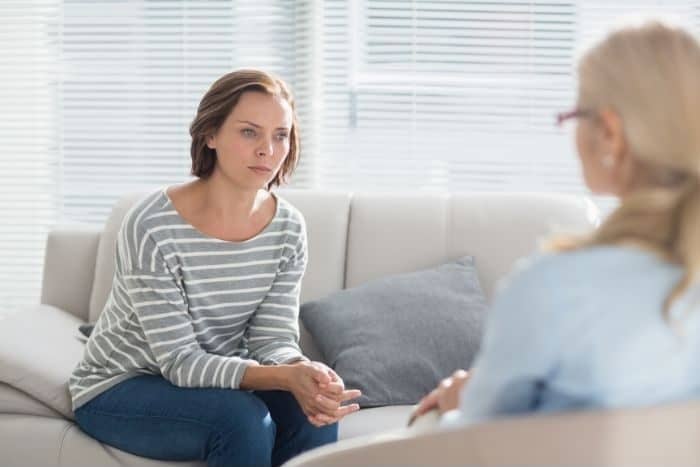
When should someone seek professional help?
Kelly Clasgens
People have varying opinions on this. There really is no problem too small to seek help.
Seeking help is a client-driven process and clients set the goals for their services.
Some people come in for a tune-up or to get back on track while others come in at the darkest hours of their life.
People are not going to be turned away if they seek help.
Dr. Randi Callahan Tracy
If you feel your ability to be your best at home or work is impacted by your anxiety symptoms, and you have tried some of the techniques we have discussed, it is time to talk with someone who is experienced and can work with you to manage this.
Having anxiety can cause us to avoid situations that may keep us from achieving our full potential at work or school, so it is very important to ask for professional help if needed to function at your very best.
Often there is embarrassment involved accessing help for any mental health issue, and we are working hard in the medical community to normalize treatment and to reduce that stigma.
Counseling and sometimes even medication can be life-changing for many patients.
Jim Vaden
When you can’t deal with it on your own. When your friends, family, colleagues have reached the limit of what they are able to do.
There’s no shame in seeking a counselor, therapist or support group.
In fact, seeking professional help is a sign of strength and an openness to growth and learning.
If everything were perfect we wouldn’t need them, but nothing is perfect. So….?

Are there physical activities that help reduce stress quicker than others?
Kelly Clasgens
A physical activity that one is likely to do and stick with it is the most likely to help.
Like New year’s Resolutions, if it is not a realistic goal then a person is setting themselves up to not achieve it.
Dr. Randi Callahan Tracy
Some who experience stress tend to feel agitated or irritable.
These folks may respond to a more calming physical activity such as yoga or stretching, or even a walk outdoors.
Others feel more “spaced out” or “frozen” when stressed, and they may feel better more quickly with stimulating activities, such as dancing, biking, swimming, etc.
It is not a one size fits all, but most folks will tend to figure out what has been most effective and then expand on that.
Jim Vaden
For me taking a brisk walk is often helpful. Sometimes it’s nothing more than some pent-up energy that needs releasing.
I have been playing basketball with my children in the evenings and have found that to be life-giving.

Are there apps that are helpful for those with anxiety?
Kelly Clasgens
There are quite a few options for people to choose from.
Headspace, Calm, and Ten percent are some of the more popular ones. Most apps will allow people to do a free trial before committing to purchase one of them.
Dr. Randi Callahan Tracy
Headspace has been helpful for many patients and has gotten good reviews, so I have recommended this one often.
Jim Vaden
Personally, I use the “Ten Percent” app on my phone. It’s a wonderful resource with guided meditations, articles, and videos.
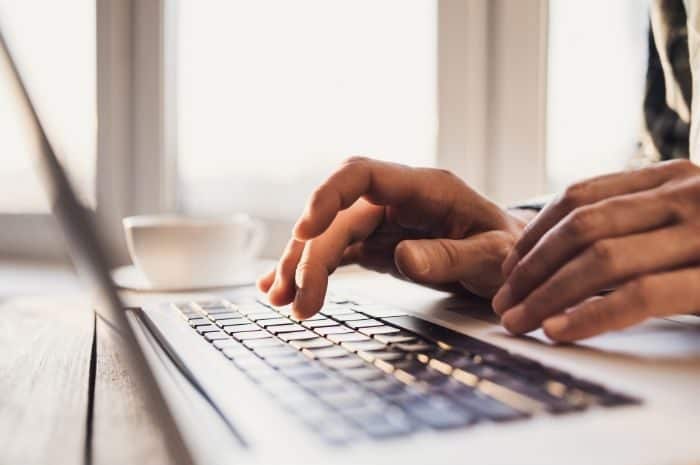
What other resources have you found helpful?
Kelly Clasgens
People are often our biggest resources.
Engaging and sharing your needs is a critical step in achieving it. Unexpressed thoughts and feelings rarely get met.
Dr. Randi Callahan Tracy
This is one of those times when I think the internet can be very helpful to access information.
Meditation videos on YouTube have been popular and are easily accessible.
The Mayo Clinic site is a reputable source of excellent information on a variety of topics, and I often recommend patients check that out.

What are some of the resources available from St. Elizabeth around anxiety?
Kelly Clasgens
St. Elizabeth offers outpatient counseling and medication services to help reduce anxiety.
Dr. Randi Callahan Tracy
We have a wonderful behavioral health staff that includes both psychiatrists as well as psychologists and they provide such a valuable service to our community.
Our employees at St. Elizabeth also have access to a separate set of mental health services, EAP.
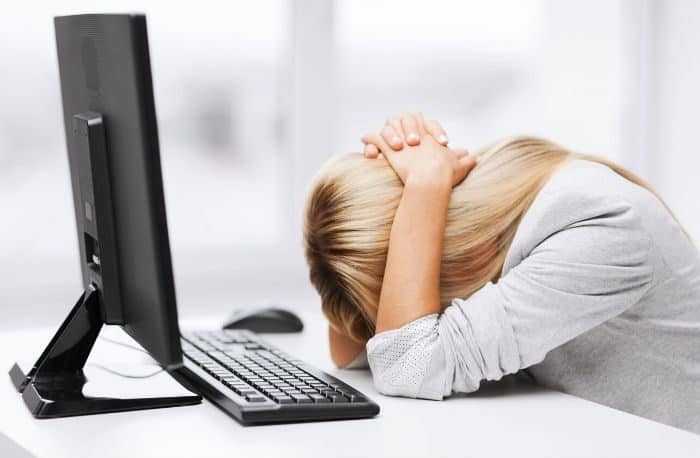
What are your tips for someone dealing with anxiety about the unknown/situations out of their control?
(job loss, dangerous work environment, the economy, their health diagnosis)
Kelly Clasgens
To practice mindfulness strategies and stay in the moment.
Recognize when thoughts go to what if or worst-case scenario ideas. It is not a helpful cognitive space to stay in.
Another tip is tapping into a person’s resiliency by remembering a difficult time in their life that they got through.
Lastly to identify things within their control. It can be as simple as controlling who they talk to or how many applications they submit a day.
Focusing on factors outside of our control equates to a sense of powerlessness and creates more anxiety.
Dr. Randi Callahan Tracy
For the issues where we really don’t have control, it can be best to limit exposure to small doses, such as the news or social media.
For other stressors such as our health or a sudden loss of a job, it may be important to define the small steps we can take to gain more control over a particular situation and find a network that can support and advise us.
It is helpful to have a confidante to share feelings and receive honest feedback in a safe and nonjudgmental way to deal with longer-term stressors.
Jim Vaden
Continue to engage in healthy activities that are within your control: eating, exercise, sleep, relaxation.
Ingest news and social media in small snippets as it can be frightening and overwhelming.
Also, seek out other people who are just going to listen when you need to talk/vent.
If all they want to do is offer advice, then find someone else to just listen.
Often talking through these situations and allowing yourself to express your fear/fears (however real or imagined they may be) is a powerful antidote to anxiety.
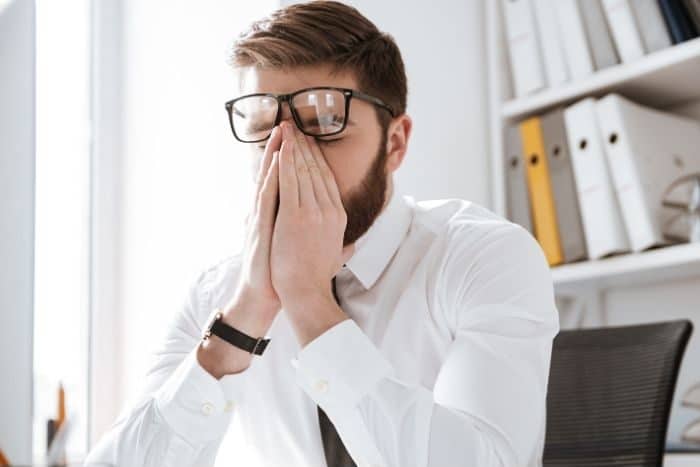
What are some coping tips for someone who works in a high-stress environment?
Kelly Clasgens
Having good self-care outside of work is essential.
Focusing on factors within a person’s control is a helpful way to cope when many things are outside of their control. Working to cultivate a positive mindset will help reduce burnout.
This is where positive self-talk plays a big role in how a person manages a high-stress work environment.
Focusing on their role in the “big picture” helps people stay connected to the purpose of what they are doing and why they are doing it.
Dr. Randi Callahan Tracy
Being aware that self-care can happen even in a very fast-paced environment is important.
A 10-second breathing technique or some simple chair stretches can alleviate stress throughout the day without requiring a lot of time.
Carving out time for a quick walk at lunchtime or 10 minutes to do something you enjoy when possible can break up the stress of the day.
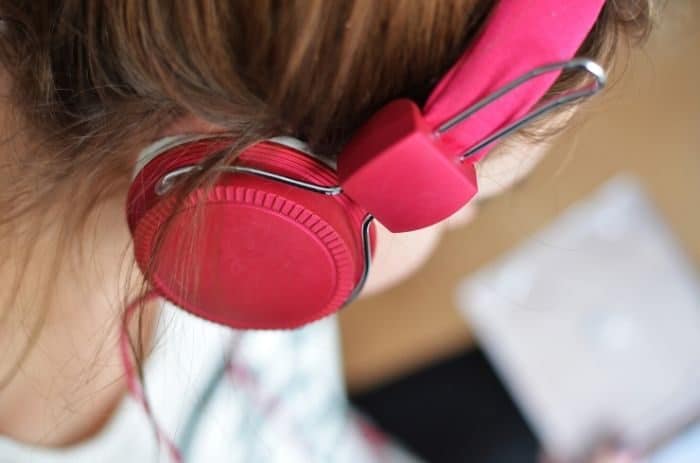
Are there things that they can do to de-stress before they come home from their high-stress environment?
Kelly Clasgens
Using the transition time to and from work can be a helpful way to get into a different mindset.
Debriefing in the car even if that means talking to themselves about their day, listening to soothing music, or just allowing themselves to be surrounded by quiet before they walk in the door helps a person be more present with their family members when they get home.
Dr. Randi Callahan Tracy
It may be helpful to have some rituals in place when leaving work that allows you to transition to home.
For some, listening to an audiobook or music will allow them to detach.
Others find it helpful to separate from work by taking a quick shower and changing clothes when they come in, making time for a quick walk, or having some quiet time with a spouse before dinner.
Any healthy ritual that allows you to shed the stressors of the day is a great routine to put in place.
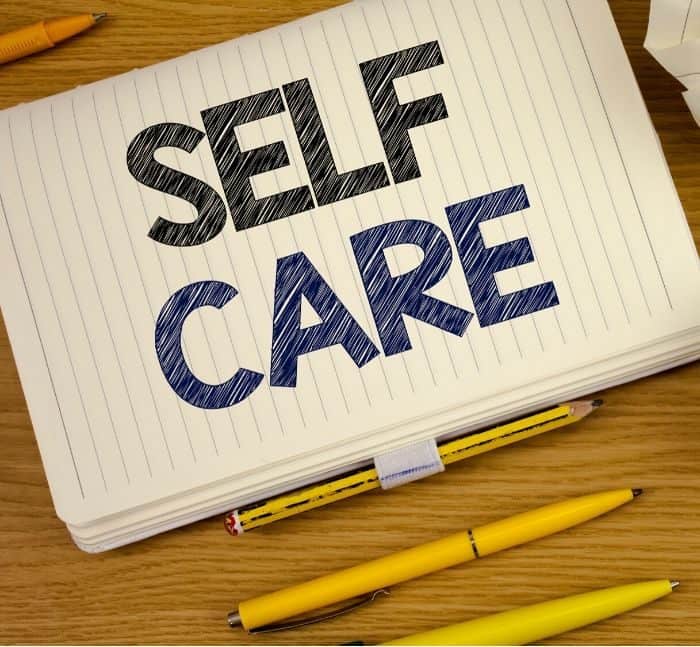
What are some daily self-care practices that help reduce stress?
Kelly Clasgens
Check-in with yourself daily and rate yourself.
Ask yourself what you can do to improve your overall mindset or well-being 1 notch.
Sometimes having 10 minutes of quiet is what is needed while other days talking with a trusted friend will serve as self-care.
Other daily self-care habits include some form of movement and general preparedness for the day.
If you know you may not get time to get something to eat at work, bring some snacks.
Taking 5 minutes before you leave for the day can make a difference all day long. Pick a mantra you can repeat to yourself for the day.

What foods/ drinks can have a positive/ negative on our anxiety?
Kelly Clasgens
Foods that have a higher nutrient quality are just better for us.
Caffeine is something that impacts anxiety.
Any substance that elevates the body can elevate anxiety. Many people who have anxiety monitor their caffeine intake and find it helpful to keep it to a minimum.
Dr. Randi Callahan Tracy
Because caffeine is a stimulant, it may really exacerbate anxiety as well as insomnia.
It is present in coffee and tea, but chocolate and energy drinks, which are highly concentrated forms of caffeine.
Alcohol is a depressant that can affect mood in many ways. Even concentrated sweets may affect mood due to fluctuations in blood sugar.
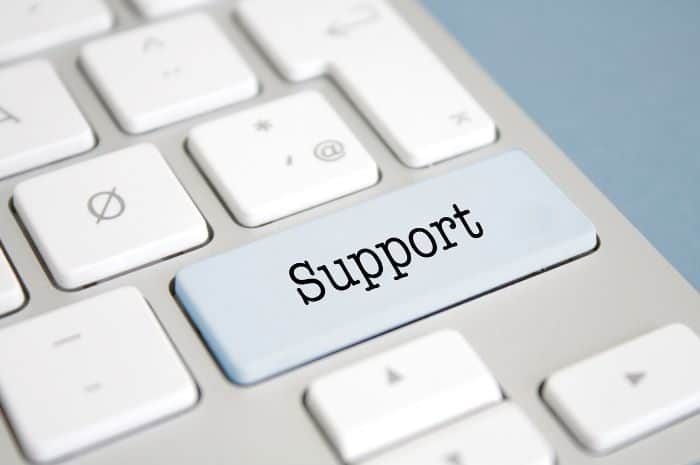
Are there any online support groups?
Kelly Clasgens
There are many telehealth options.
Most of them are individual in format but there are a few local providers venturing into the online support group modality.
I would encourage people to seek out a format that they are most comfortable with and explore it.
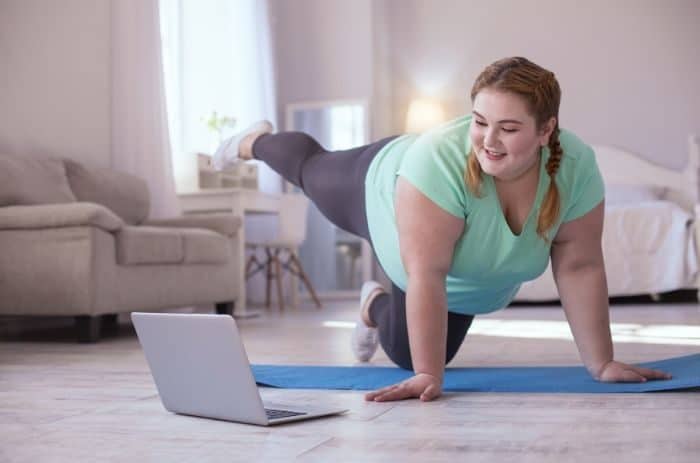
Do you have recommendations for physical activities that can be tried at home to help reduce stress?
Kelly Clasgens
There are many Youtube videos, Amazon Prime, and Netflix exercise video options.
The key is finding one that suits your style so that you stick with it.
Jim Vaden
Meditation/Mindfulness – which can be done anywhere!
Yoga has been helpful to me in the past and there are plenty of free videos on Youtube and other streaming services.
Thanks again to the staff at St. Elizabeth for this important conversation on anxiety. I hope that you found their tips as helpful as I did!
Learn more about the ways that you can volunteer at St. Elizabeth Healthcare. Tips for simplifying the process for your child's sports physical. Learn more about why you will want to schedule a power lunch with friends for your next mammogram. Learn more about the genetic screening process for proactive care. Learn more about JUULing and how it negatively affects adults and students. Learn more about the benefits of an injury prevention program for student-athletes. Learn more about services that can help Woman's Health. Learn more about lifesaving screenings available through St. Elizabeth.Health Related Articles
Give Back With These Volunteer Opportunities at St. Elizabeth Hospital
How to Make Your Child's Sports Physical Stress-Free
Why a Power Lunch is the Best Way to Face Your Mammogram Fears
How to Determine if Genetic Screening is Right for You
What Parents and Students Need to Know About JUULing
How an Injury Prevention Program Benefits Student-Athletes
The Dr. You Need To Meet If You Are Afraid to Jump, Laugh, or Sneeze
How a 30 Minute Screening Could Save Your Life
